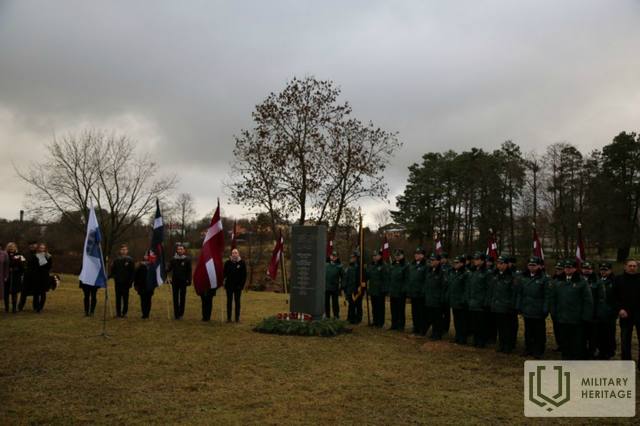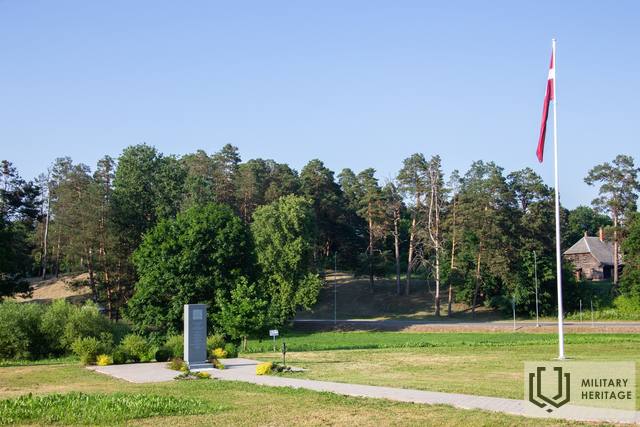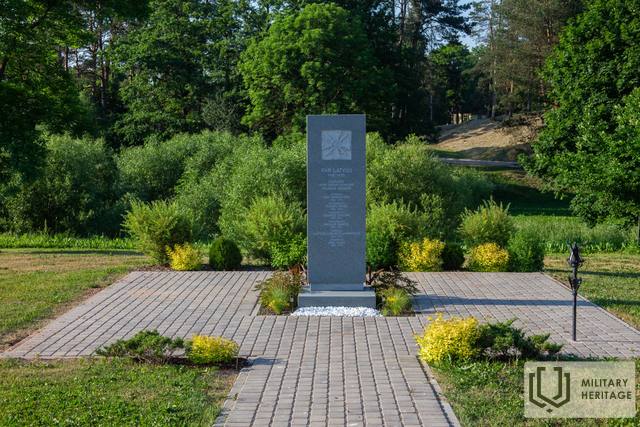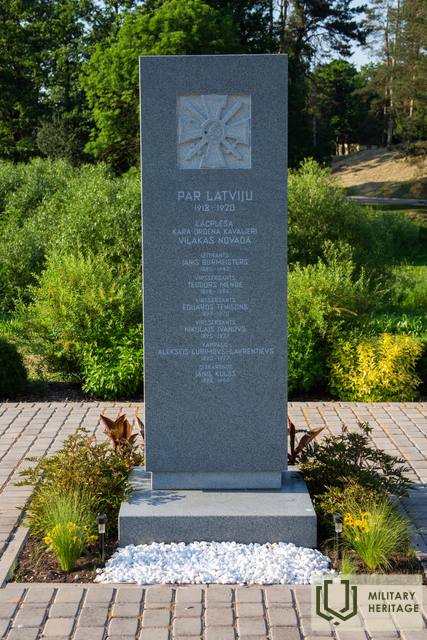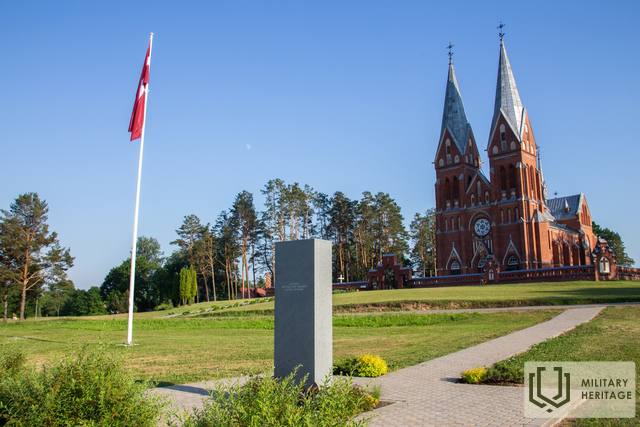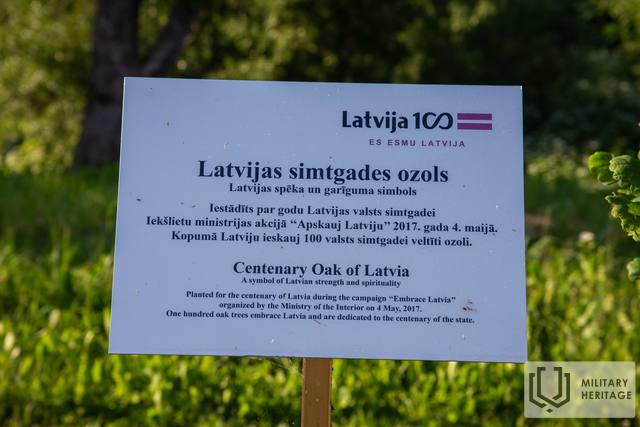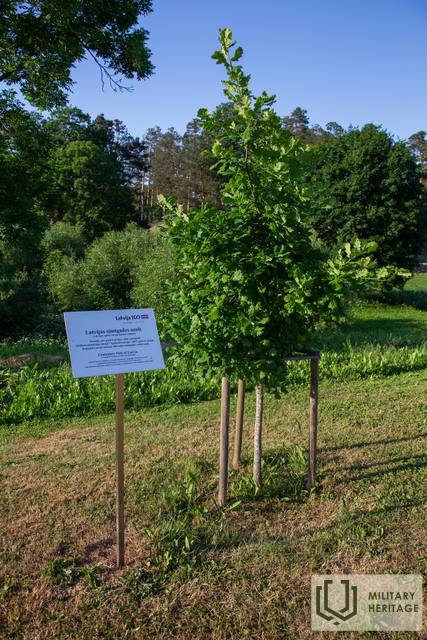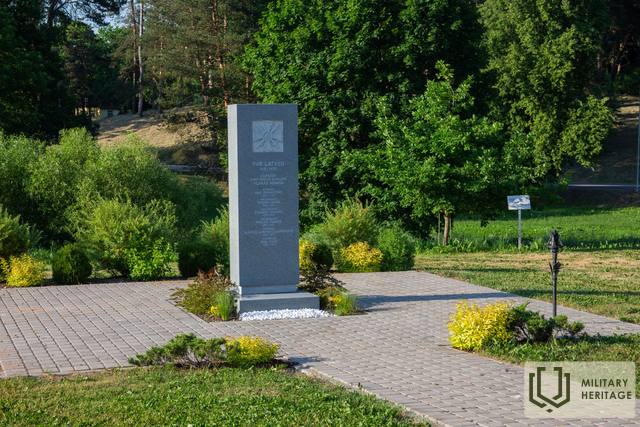Memorial stele for the knights of the War Order of Lāčplēš
Memorialinis vieta
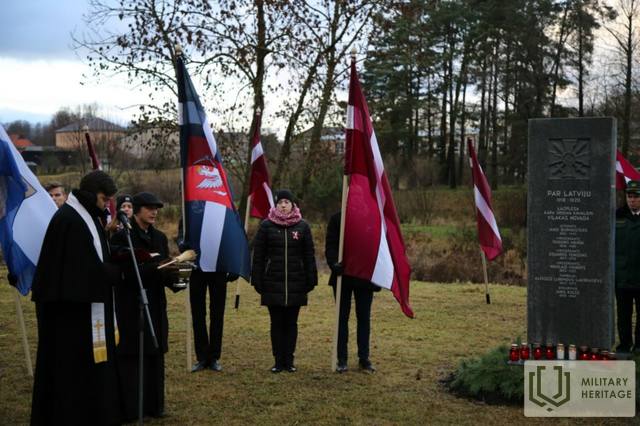

 246
246



It is located next to the Roman Catholic Church of the Heart of Jesus in Viļaka.
The memorial stele for the knights of the Lāčplēš War Order in Viļakas region was opened on November 11, 2017. The destinies of 28 Lāčplēš Knights of the Military Order are connected with the name of Viļakas county.
The granite stele was created as part of the project "Remember Lāčplēšus" dedicated to the centenary of the Latvian state. Commemorative stelae of a uniform model will be installed throughout Latvia in honor of the soldiers who died in the Latvian Freedom Struggle. The initiator of the project is the Jaunsardze and Information Center.
Five knights of the Lāčplēš War Order, whose names are engraved on the memorial stele, lived in the territory of the present-day Viļakas district after the end of the Freedom Struggle:
– Jānis Kuļšs was a young farmer in Apsīs, Šķilbēni parish,
– Aleksej Lyubimov (Lavrentiev) lived on the Fortepianova farm in Šķilbēni parish, later in Vilaka,
– Teodors Mende managed the farm assigned to him and was a forest guard in the village of Katleši, Žigur parish,
– Eduard Tennyson lived at Vecumu station, later lived in Chabatrova village and worked at p/s "Viļaka",
– Jānis Burmeisters after 1928 lived in Šķilbēni parish for some time.
The brothers' cemetery in Viļakas county is the resting place of 45 soldiers who gave their lives in 1920, defending Latvia from bigots. January 9 was the day when the attacks began in North Latgale, and despite the difficult weather conditions at that time, Viļaka was also liberated on the same day.
In the battles for the liberation of Latgale, Estonian soldiers also fought side by side with Latvian army soldiers and partisans against the Red Army in Viļakas county. Many of them gave their lives for a free Latvia.
Panaudoti šaltiniai ir literatūra:
http://old.vilaka.lv/uploads/docs/avize/Vilakas%20novada_NOVEMBRIS_2017.pdf
http://old.vilaka.lv/index.php?mact=CGBlog,cntnt01,detail,0&cntnt01articleid=4645&cntnt01returnid=19
https://www.lsm.lv/raksts/dzive--stils/vesture/brivibas-cinam-ziemellatgale--100-gadadiena.a344388/
Susijusi laiko juosta
Susijusi istorija
Šiaurės Latgalos išvadavimas iš bolševikų
1918 m. gruodžio 1 d. Raudonosios armijos daliniai, paremti Raudonųjų šaulių daliniais, įsiveržė į Latvijos teritoriją. Siekdami apsaugoti savo namus, šeimas, gimtuosius rajonus, pabėgti nuo siaubo, Balvi apylinkių vyrai griebėsi ginklo ir ėjo į miškus, pradėjo kurtis pirmosios „žaliosios“ grupės. 1919 m. pavasarį, kai buvo paskelbta mobilizacija, daugybei Balvų apylinkių vyrų kovoti sovietinėje Latvijos armijoje atrodė nepriimtini ir jie prisijungė prie „žaliųjų“ grupuočių. Susikūrė Balvų, Silakrogo, Rugėjų, Teterių-Dūrupės ir Liepnos grupės. „Žaliųjų“ grupių veikla Balvių apylinkėse suaktyvėjo 1919 metų kovo mėnesį.




